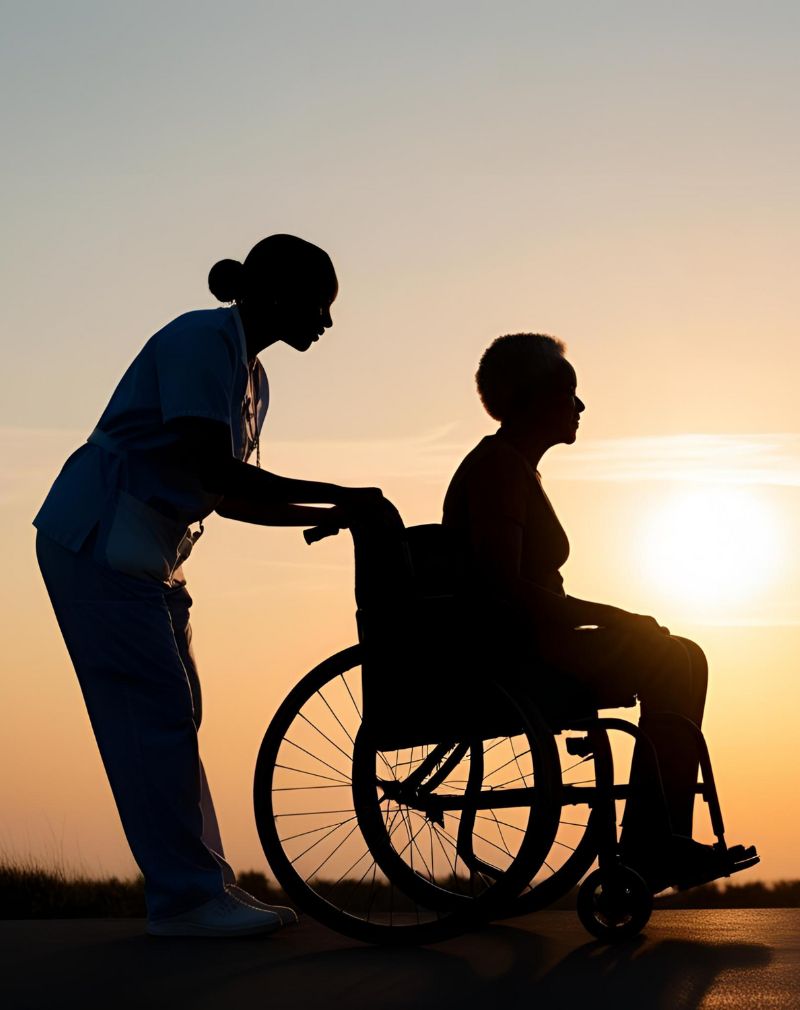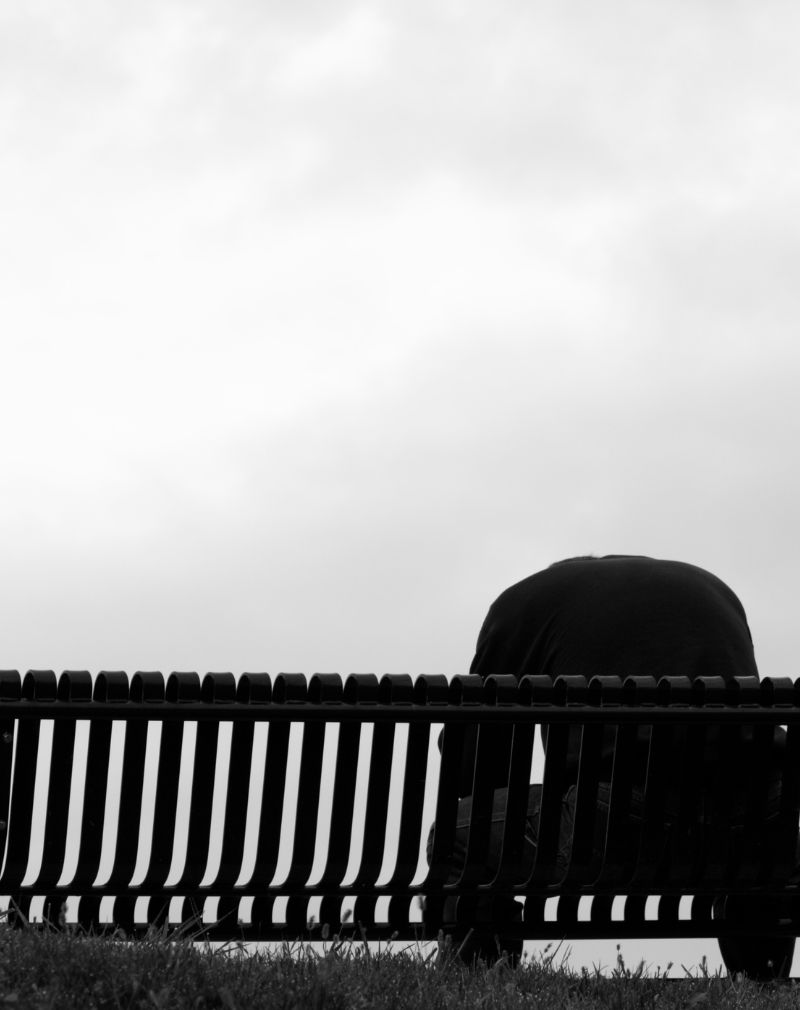Nearly one in three caregivers of cancer survivors live with anxiety or depression, even after their loved one is declared cancer-free. That’s not weakness. That’s exhaustion with nowhere to rest.
Because when treatment ends, life doesn’t just snap back. The machines stop, the doctors step back, and everyone says, “You can breathe now.” But for many families, that’s when they realize they’ve forgotten how.
Caregivers spend months, sometimes years on alert. Watching. Managing. Holding it all together. When the crisis passes, their bodies don’t know how to stand down. The fear stays. The mind keeps checking for danger that isn’t there anymore.
Survival changes everyone, not just the person who had cancer. And the people who looked strong the whole way through are often the ones who fall apart quietly afterward.
At The American Wellness Center in Dubai Healthcare City, our Psychology Department works with those families. The ones who kept smiling through the storm. The ones who now feel lost in the calm. We help them find their footing again; slowly, honestly, together.
The Silent Toll of Caregiving
Caregivers rarely sleep deeply. Even when they do, their bodies stay alert, waiting for the next alarm, the next symptom, the next emergency that might not come.
This constant state of “chronic vigilance” wears the body down. Over time, it raises blood pressure, weakens the immune system, and makes real rest feel impossible.
Caregivers often start their day tired and end it wired. They keep showing up, but something inside begins to fray.
What starts as love slowly becomes survival.
Many caregivers tell themselves, “I’m fine. I’m just tired.” But behind that phrase sits irritability, guilt, and grief they don’t have time to name. Some feel angry for wanting rest. Others feel detached from the person they fought so hard to save.
At The American Wellness Center in Dubai Healthcare City, our psychologists help families name what’s happening. We teach them that these feelings are not failures. They are signs of strain that can be treated before they become depression or burnout.
Therapy becomes a place to exhale after years of holding it in.
When the Crisis Ends but the Mind Doesn’t Rest
Cancer treatment ends. The machines stop. The checkups spread out. But the mind doesn’t always follow the same timeline.
Many caregivers struggle with what experts call post-treatment distress. It’s the unease that lingers when life is supposed to feel normal again but doesn’t.
Up to four in ten caregivers show signs of post-traumatic stress within a year of remission. They’re not imagining it. Their bodies are still wired for crisis, scanning for danger that’s no longer there.
They worry every headache could be a sign of return. Every silence feels suspicious. The relief of survival quickly turns into the fear of relapse.
- Healing is not a switch. It’s a slow rewiring.
- You don’t “move on” from survival; you rebuild after it.
- Fear that lingers deserves care, not shame.
At The American Wellness Center, therapy focuses on helping families find safety again. That means rebuilding daily routines, reclaiming sleep, and restoring trust in ordinary life.
It’s not about forgetting the cancer journey. It’s about learning to live without its constant shadow.
Couple and Family Therapy: Rebuilding Connection
Illness doesn’t just test the body. It tests relationships. Many couples find themselves strangers after recovery; one relieved, the other still scared.
Intimacy can fade when survival takes over. Communication becomes practical, not emotional. Even love starts to feel like duty.
Some partners admit feeling useless once the patient no longer “needs” them in the same way. Others feel guilty for wanting space after months of caretaking. Parents may cling too tightly, afraid to relax in case something goes wrong again.
Therapy at AWC helps families speak these truths safely. Using proven approaches like Emotionally Focused Therapy and Family Systems Therapy, psychologists guide couples and families to rebuild connection piece by piece.
It’s not about blame. It’s about learning to talk again; to listen, to be honest, to be human.
- Love after illness looks different. That’s okay.
- You can care deeply and still feel distant.
- Healing together takes practice, not perfection.
At The American Wellness Center in Dubai Healthcare City, family therapy gives loved ones a place to reconnect. It’s where they stop surviving each other and start understanding each other again.
Secondary Trauma and Survivor’s Guilt
Caregivers often believe trauma belongs only to the patient. But watching someone suffer leaves its own wounds.
This is called secondary trauma. It’s the emotional fallout of witnessing pain you couldn’t stop. It shows up as sleepless nights, sudden panic, or a constant sense of alert even when things are fine.
Then there’s survivor’s guilt. That quiet, punishing thought: “They went through worse, so I have no right to feel this way.” Many bury their pain under gratitude and call it strength.
Remember:
- Suppressing pain doesn’t erase it. It stores it.
- Guilt wears the mask of strength until it breaks you.
- You deserve help, even if you weren’t the one in the hospital bed.
Therapy gives those feelings a safe place to exist. It helps you name what you’ve carried, and it teaches your body how to let go of its constant tension.
At The American Wellness Center in Dubai Healthcare City, trauma-informed therapy has helped many caregivers lower their distress levels by nearly half within months of treatment. Healing begins when silence turns into conversation.
Preventing Compassion Fatigue and Emotional Burnout
Empathy fuels caregiving, but too much of it without rest turns into exhaustion. That’s compassion fatigue.
It isn’t just being tired. It’s feeling empty. Detached. Like you’ve run out of care to give.
Many caregivers miss the signs because they sound noble: “I can’t stop worrying,” or “They need me more than I need rest.” But beneath those words is a body and mind pushed past their limits.
Truths worth keeping:
- If helping leaves you hollow, it’s not weakness. It’s depletion.
- Resting doesn’t mean you’ve stopped caring.
- A caregiver running on fumes can’t give comfort, only endurance.
At AWC, psychologists work with caregivers to set healthy boundaries, practice mindfulness in ways that actually fit daily life, and bring self-care back into reach without guilt.
Our caregiver support groups turn isolation into understanding. People share stories that make others feel seen again. That connection becomes medicine for the mind.
Early therapy also protects physical health. It reduces headaches, stomach issues, and the deep fatigue that comes from emotional strain. Caring for others should not destroy you. It should include you.
The AWC Approach: Restoring Balance to the Whole Family
Healing lasts longer when it includes everyone.
At The American Wellness Center, therapy is not a single path. It’s a network of care built around the family.
Individual sessions help caregivers process private pain. Family counseling rebuilds trust and communication. Psychoeducation gives everyone the tools to understand what recovery actually feels like.
Our psychologists work alongside AWC’s oncology and family medicine teams so that emotional and physical healing move together, not apart.
Simple reminders:
- Balance starts when everyone feels seen.
- Families heal faster when they heal together.
- Progress is possible, even when life feels changed forever.
Sessions are confidential, multilingual, and flexible for busy families. Because the goal isn’t just to recover from cancer. It’s to live well after; together, steady, and whole.
When Survival Isn’t the End
Surviving cancer is not the finish line. It’s the beginning of a quieter battle no one warns you about.
The world moves on. The scans look clear. But inside, you still flinch at small things; a cough, a silence, a memory. Your body keeps waiting for bad news that never comes.
And if you’re the caregiver, the one who stayed strong through every night and every needle, you’ve probably forgotten what it feels like to rest without guilt.
Here’s what most people never say: surviving takes more than medicine. It takes learning how to live again when fear has rewired your heart.
At The American Wellness Center in Dubai Healthcare City, we’ve seen what happens when families finally let themselves breathe. When they stop pretending to be fine and start talking about what it really felt like. That’s where healing begins—one honest word at a time.
If you’ve read this far, you already know it’s time. Let us take the next step with you. Our psychologists are here to help you find balance, rebuild connection, and remember that survival was never the goal. Living fully is.



